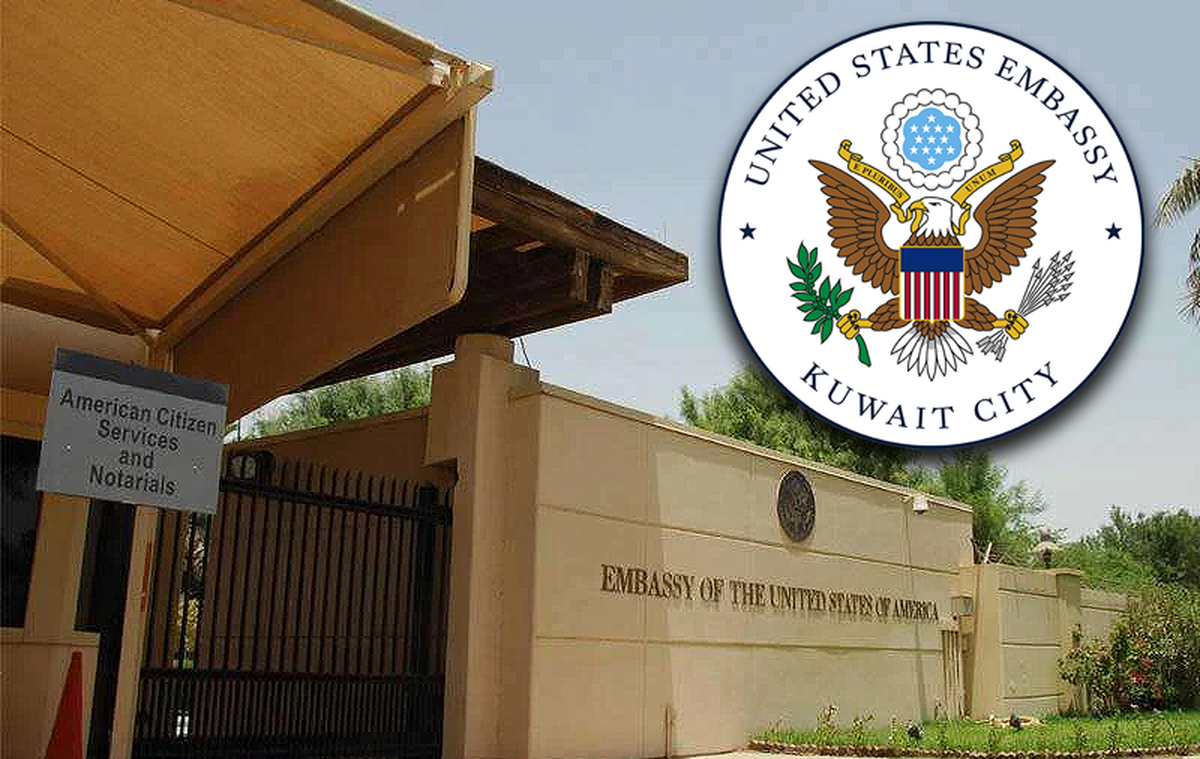12/06/2025
12/06/2025

The embassy had already been on limited staffing, and the order will not affect a large number of personnel. The department, however, also is authorizing the departure of nonessential personnel and family members from Bahrain and Kuwait. That gives them the option of leaving those countries at government expense and with government assistance. Defense Secretary Pete Hegseth “has authorized the voluntary departure of military dependents from locations” across the region, U.S. Central Command said in a statement. The command “is monitoring the developing tension in the Middle East.” Speaking at the Kennedy Center in Washington on Wednesday evening, President Donald Trump said, “They are being moved out, because it could be a dangerous place, and we’ll see what happens. We’ve given notice to move out, and we’ll see what happens.”
Tensions in the region have been rising in recent days as talks between the U.S. and Iran over its rapidly advancing nuclear program appear to have hit an impasse. The talks seek to limit Iran’s nuclear program in exchange for the lifting of some of the crushing economic sanctions that the U.S. has imposed on the Islamic Republic. Iran insists its nuclear program is peaceful. The next round of talks - the sixth - had been tentatively scheduled for this weekend in Oman, according to two U.S. officials, who spoke on condition of anonymity to discuss diplomatic matters. However, those officials said Wednesday that it looked increasingly unlikely that the talks would happen. Trump, who has previously said Israel or the U.S. could carry out airstrikes targeting Iranian nuclear facilities if negotiations failed, gave a less-than-optimistic view about reaching a deal with Iran, telling the New York Post’s “Pod Force One” podcast that he was “getting more and more less confident about” a deal.
“They seem to be delaying, and I think that’s a shame. I’m less confident now than I would have been a couple of months ago. Something happened to them,” he said in the interview recorded Monday and released Wednesday. Iran’s mission to the U.N. posted on social media that “threats of overwhelming force won’t change the facts.” “Iran is not seeking a nuclear weapon, and U.S. militarism only fuels instability,” the Iranian mission wrote. Iranian Defense Minister Gen. Aziz Nasirzadeh separately told journalists Wednesday that he hoped talks with the U.S. would yield results, though Tehran stood ready to respond. “If conflict is imposed on us, the opponent’s casualties will certainly be more than ours, and in that case, America must leave the region, because all its bases are within our reach,” he said. “We have access to them, and we will target all of them in the host countries without hesitation.”
Meanwhile, the Board of Governors at the International Atomic Energy Agency was potentially set to vote on a measure to censure Iran. That could set in motion an effort to snap back United Nations sanctions on Iran via a measure in Tehran’s 2015 nuclear deal with world powers that’s still active until October. Trump withdrew from that agreement in his first term. Earlier Wednesday, a statement from the United Kingdom Maritime Trade Operations center, a Mideastbased effort overseen by the British navy, issued a warning to ships in the region that it “has been made aware of increased tensions within the region which could lead to an escalation of military activity having a direct impact on mariners.” It urged caution in the Arabian Gulf, the Gulf of Oman and the Strait of Hormuz. It did not name Iran, though those waterways have seen Iranian ship seizures and attacks in the past. The top U.S. military officer for the Middle East, Gen. Erik Kurilla, was scheduled to testify before the Senate Armed Services Committee on Thursday, but that testimony has now been postponed, according to the committee’s website.
The Pentagon has not commented on the postponement. Meanwhile, Iraq’s state-run Iraqi News Agency said in a statement attributed to an unnamed government official that the evacuation of some nonessential employees from the U.S. Embassy in Baghdad was part of “procedures related to the U.S. diplomatic presence in a number of Middle Eastern countries, not just Iraq” and that Iraqi officials “have not recorded any security indicators that warrant an evacuation.” “We reiterate that all security indicators and briefings support the escalating assessments of stability and the restoration of internal security,” the statement said.
By Fares Ghaleb
Al-Seyassah/Arab Times Staff and Agencies


